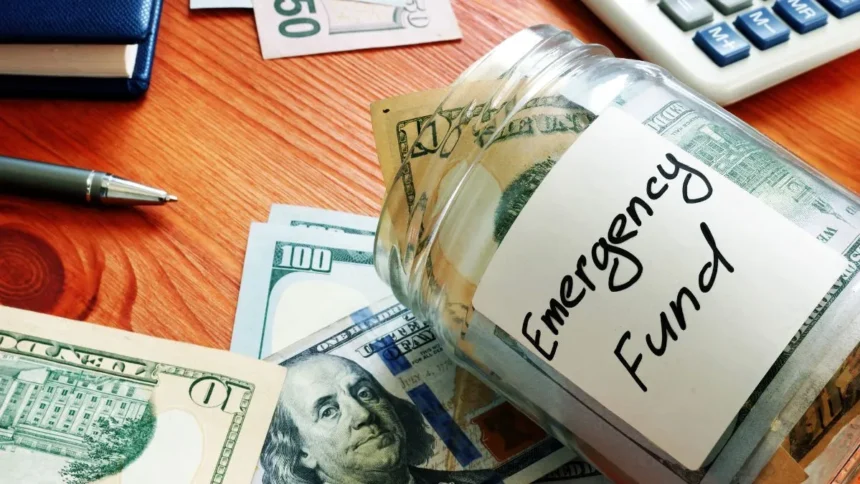In today’s unpredictable world, financial stability is a goal for many, but it remains elusive for those unprepared for sudden challenges. Emergencies such as job loss, medical issues, or major repairs can wreak havoc on your finances if you’re unprepared. Enter the emergency fund: a dedicated financial cushion designed to help you weather these storms without derailing your long-term financial goals.
Why Are Emergency Funds Essential?
The Role of Financial Security
Financial security isn’t just about accumulating wealth—it’s about having peace of mind. An emergency fund acts as a buffer, giving you confidence to handle life’s uncertainties without undue stress. It ensures you have resources to cover unexpected costs, preventing financial instability.
Managing Unexpected Expenses
Life is full of surprises, and not all are pleasant. Medical emergencies, car breakdowns, or urgent home repairs can emerge when least expected. Without an emergency fund, you may have to rely on credit cards or loans, which could escalate into unmanageable debt.
Avoiding Debt Traps
Debt can spiral out of control when you borrow to cover emergencies. High-interest loans and credit card bills can quickly accumulate, leaving you financially strained. A well-maintained emergency fund helps avoid these pitfalls by providing immediate access to necessary funds.
How Much Should Your Emergency Fund Have?
Determining the Ideal Amount
A general rule of thumb is to save three to six months’ worth of living expenses. For individuals with stable incomes, three months might suffice, but if you work in a volatile industry or have dependents, six months or more is advisable.
Factors Affecting Emergency Fund Goals
Several factors influence the size of your emergency fund, including:
- Income Stability: Freelancers and business owners might need a larger fund.
- Dependents: A larger household typically requires a more substantial safety net.
- Lifestyle Expenses: Those with higher fixed expenses need a bigger reserve.
- Health Concerns: Ongoing medical issues necessitate a larger emergency fund.
Steps to Start Building an Emergency Fund
Assess Your Finances
Begin by evaluating your current financial situation. Calculate your monthly expenses, including rent, utilities, groceries, insurance, and transportation. This step helps determine your savings target.
Set Clear Savings Goals
Establish a realistic savings target and timeline. Break it into smaller, manageable milestones to stay motivated and track your progress effectively.
Choose the Right Savings Account
Opt for a separate savings account with easy access but limited withdrawal options. High-yield savings accounts are an excellent choice as they provide better returns while keeping your money safe.
Automate Savings Contributions
Automating your savings ensures consistency. Schedule a fixed amount to transfer into your emergency fund each month. This “set it and forget it” approach builds your fund steadily over time.
Practical Tips for Growing Your Emergency Fund
Reduce Unnecessary Expenses
Cutting back on discretionary spending can free up money for your emergency fund. Identify areas like dining out, subscriptions, or impulse shopping where you can save.
Leverage Windfalls and Bonuses
Tax refunds, work bonuses, or unexpected financial windfalls should go directly into your emergency fund. These one-time contributions significantly accelerate growth.
Explore Side Hustles
Earning extra income through part-time work or freelance gigs can boost your emergency fund. Dedicate this additional income solely to your savings goal.
Common Challenges and How to Overcome Them
Building an emergency fund isn’t without obstacles. Limited income, pressing debts, or fluctuating expenses can hinder progress. To overcome these:
- Prioritize Saving: Treat your emergency fund as a non-negotiable expense.
- Start Small: Even small contributions add up over time.
- Adjust as Necessary: Reassess your budget periodically to accommodate changes in income or expenses.
The Benefits of Maintaining an Emergency Fund
Maintaining a robust emergency fund offers several advantages, including:
- Financial Freedom: Reduce reliance on credit during emergencies.
- Stress Reduction: Enjoy peace of mind knowing you’re prepared.
- Improved Financial Discipline: Cultivates better money management habits.
Conclusion
An emergency fund is not just a financial safety net—it’s a critical component of a secure and stress-free life. By prioritizing savings, setting clear goals, and implementing practical strategies, anyone can build and maintain a fund to weather life’s uncertainties. Start today, no matter how small, and watch your financial confidence grow.







